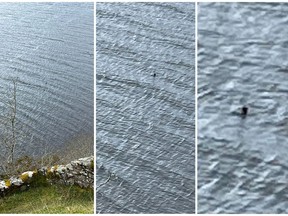The western media has shown strange mixes of courage and cowardice, as well as naivety and cynicism, in their parroting of Putin disinformation. On the one hand, the Murdoch-controlled Wall Street Journal has pursued the truth on Russia’s economic implosion to the peril of its kidnapped Moscow based reporter Evan Gershkovich. Paradoxically, in the aftermath of Tucker Carlson’s firing from the Murdoch-controlled Fox News last week, perhaps the loudest laments came from, of all places, the Kremlin, with Kremlin commentators mourning the loss of an anchor who consistently echoed Putin’s talking points to the point where Russian state media often used re-runs of Tucker’s show.
In fact, CNN’s Erin Burnett just showed how false declarations from Carlson that “if there is any single American who deserves scorn and indeed blame for the invasion of Ukraine, it is Joe Biden” and “Ideologues within the Biden Administration did not want a negotiated peace in Ukraine, they wanted a regime change war against Russia” literally echoed, word-for-word, prior commentary from Kremlin spokespeople and Russian state media. Even worse, Carlson repeated, verbatim, doctored and false “intelligence” that there were seven Ukrainian casualties for every Russian casualty when in reality these numbers were invented, the product of a pro-Putin former Navy technician named Sarah Bils digitally altering leaked documents from the Discord trove and posting them online.
But Tucker Carlson is not the only western journalist to repeat Russian propaganda. Steven Brill and Gordon Crovitz’s Newsguard has found more than 350 news sites promoting 100 false narratives about Russia’s war in Ukraine. One pervasive but false propaganda myth hits particularly close to home.
In recent days, Putin’s personal press secretary Dmitry Peskov has picked up a line of attack against the authors of this piece, arguing that we are frauds and that we brazenly invented the exits of over 1,000+ western multinationals from Russia, citing a provably false “research” study authored by individuals who called for our criminal indictment. us.
Putin did not have to invent this line of attack, as he got it straight from naïve western media who even now continue to cite the debunked, fraudulent research as if it were credible fact, even though it has been thoroughly disproven.
Putin’s goal as he loses the military, diplomatic, and economic wars is to win the information war to erode allied unity. It has become progressively harder for him to pretend that he is winning the diplomatic war as his top diplomat faced open laughter and jeers when he claimed in New Delhi that Ukrainian aggression started the war.
Similarly, it has become more difficult for Putin to pretend that the military war is going smoothly when his troops are visibly getting ground into the dust, though Putin did still try – laughably claiming six Ukrainian casualties for every Russian casualty, which was universally dismissed. But sadly, on the economic war, western media remains strangely naïve to Putin’s economic disinformation in perpetuating a prevalent but false myth of Russian economic resilience.
But that resilience is a Potemkin façade. For instance, can it be a coincidence that the list of “1,404 western companies” featured in the disproved research study is actually a list of mainly Russian companies and Russian oligarchs who can hardly leave Russia and are not capable of divesting, as we have shown, and that TASS and Russian state media instantaneously and prominently showcased it on the day of its release. In reality their research has been thoroughly discredited by The Wall Street Journal’s data analysis expert Josh Zumbrun who was unable to replicate their findings and by other major objective outlets ranging from the Swiss National Radio, Semafor, and many more.
Yes, we are serious – they actually substituted Russian people and Russian companies masquerading as western corporations! Could the FSB actually be that clumsy or is this just a sheer accident and the researchers meant to stuff the list with Argentine, Icelandic, or Zambian companies?
Meanwhile, neglected from their study were hundreds of bona fide western multinationals such as Airbus, American Express, Amazon, American Airlines, BCG, Boeing, Commerzbank, Citigroup, Deloitte, DeutscheBank, DeutscheTelekom, EY, Honeywell, International Paper, JPMorgan, Marriott, McKinsey, Otis, Raytheon, Wells Fargo, and hundreds more, as we chronicle here.
Yet inexplicably, respected western journalists such as Jamil Anderlini and Doug Busivine at Politico EU, and Anne-Sylvaine Chassany of The Financial Times continue to cite this debunked “research” uncritically, echoing Putin crony Peskov’s triumphant recitations. As one particularly galling example, a formerly Moscow-based correspondent from the Washington Post unethically exploited our list as a misleading foil to argue that companies are not really exiting – without ever contacting us for comment or insight.
This misguided journalist argues erroneously that companies many companies “have done less than promised”, breathlessly, scandalously citing examples such as Coca-Cola and Pepsi. But the truth is that neither company ever pledged to fully exit Russia and only pledged partial exits to begin with, which is why they have ranked as “C” – partially scaling back, on our publicly posted list of exits. We too wish that Coke and Pepsi had announced a full pull-out but they didn’t. That is why they are NOT graded as “A” or “B” firms.
No one has questioned the A and B companies on that list, available for public inspection, though we did have to downgrade a few companies on our own for returning to Russia such as Heineken, Carlsberg, and Pernod Ricard. The fact some companies have partially withdrawn amidst a small handful of downgrades does not erode the inspiring historic milestone of over 1,000 major multinational companies fully pulling out of Russia, six times the prior historic record of the highly effective, 200 companies exiting South Africa in protest of the Apartheid regime.
Other journalists also mistakenly set up our list of carefully-researched companies as an inferior foil to misleading studies, including some who repackage our list without any scaled rubric of gradations of exits, joining an echo chamber of simplistic dichotomous “in’ vs. “out” categorizations which does not capture the more complicated reality of scaled exits and different degrees of exit. They are also confused by phantom accounts which Putin has retained in the names of these companies, when in reality these companies have written off their assets completely. Other critics use questionable sourcing, such as relying upon Putin economic advisers such as Chris Weafer, a strategist at sanctioned, scandalized Sberbank to attack the legitimacy of our work – perhaps not the most objective source!
Furthermore, some journalists misleadingly set our list up as a foil against the impressive database maintained by our colleagues at the Kyiv School of Economics, when in reality our work is complimentary as their list includes smaller, local proprietorships while our list is focused on multinational corporations. We work closely with them, with weekly exchanges of data and in-person collaboration visits for the past year, towards our commonly shared goals and in fact even co-authored with them critiques of the deceptive attacks on our work.
We wish we could say that the above facts should finally put to rest these fallacious cynical narratives, but unfortunately, at this point, even though anyone can access our list of 1,000+ companies, the myth that we somehow “invented” the Russian business retreat may not be put to rest so easily. But it is not just about businesses pulling out of Russia. Like the conquering of a recurring villain in a Stephen King horror movie, we again have to address the insidious Putin propaganda unfortunately channeled by western media that somehow the broader Russian economy is resilient, and that business exits combined with western sanctions have barely made any dent – especially thanks to pernicious IMF economist forecasts repeating Putin’s propaganda.
Putin has kept ironclad control over the release of economic statistics since the start of the war, selectively tossing out unfavorable metrics. Prior to the war, these statistics were released on a monthly basis but now, the Kremlin withholds statistics relating to exports and imports, particularly with Europe; oil and gas monthly output data; commodity export quantities; capital inflows and outflows; financial statements of major companies; central bank monetary base data; foreign direct investment data; lending and loan origination data; and even Rosviastsiya, the federal air transport agency, abruptly ceased publishing data on airline and airport passenger volumes. Last week, Russia started withholding all data related to oil for the indefinite future.
Yet the IMF somehow predicts that the Russian economy will grow more than that of Europe’s this year, based on Putin’s false GDP numbers, while practically every peer organization from the World Bank to the UN to investment banks have negative economic contraction in Russia this year. Even the Russian Central Bank predicts a negative 1% economic contraction while the IMF predicts a positive 0.7% growth.
In fact, we have the IMF economists admitting to us in recorded conversations that they are flying blind, as Putin has concealed the national income statistics required to be a IMF member and required for the IMF to verify Russia’s economic statistics, and the IMF plainly confesses to having “zero visibility” into what is happening in Russia as their own economists have evacuated and they are no longer in contact with Russian government sources.
Furthermore, if it weren’t tragically echoed by western media, it would be amusing that IMF economists confuse top-line energy revenues with bottom-line profits, or in this case, losses. In defense of their growth forecast, the IMF says “Russian crude oil export volumes are not expected to be significantly affected, with Russian trade continuing to be redirected from sanctioning to non-sanctioning countries.” Perhaps their calculus is too sophisticated and they forgot arithmetic. $45 a barrel to extract oil plus $10-$12 to transport to India and China equals $57. The current Urals oil pricing is ~$55, nothing for the IMF or Putin to celebrate. Maybe the IMF economists needed MBAs with their PhDs to explain you cannot make up losses in the volume, as the old retailing quip goes.
These lies from the IMF buttress a media narrative spread by the likes of august commentators such as Fareed Zakaria, Larry Summers, Anton Troianovski, The Washington Post, and Politico EU which purports sanctions are having little effect on Russia when in reality these cynics are falling for Putin’s fake stats hook, line, and sinker.
The same western media that would wince at the idea of 83 Russian journalists that lost their balance on windowsills under Putin and 36 oligarchs who questioned Putin somehow ran in the path of cars or off of balconies by accident, accept uncritically Putin’s similarly fallacious economic machinations.
The courageous journalists who do report on Russia’s crumbling economy get to the critical truth, which is the impact of business exits from Russia, combined with powerful sanctions and price caps, have badly crippled Putin’s economy. All objective economic data suggests Russia’s economy is becoming increasingly undone at the seams, with economic activity in many sectors down upwards of 60% to 95%, and with Putin losing $500 million a day in energy sales relative to his windfall profits last year.
Yes, more economic pressure is needed to end Russia’s invasion of Ukraine, and the job is far from finished. A group of researchers led by former U.S. Ambassador to Russia Michael McFaul and Ukrainian Presidential Advisor Andriy Yermak have put together a roadmap for further sanctions that are needed to choke Russia’s war machine. But the fact more work remains should not detract from the fact that sanctions and business retreats are taking a heavy toll on Russia’s economy – which is the truth no matter what media narratives spin.
Perhaps the most cynical Moscow beat reporters should spend less time in Moscow’s café society with their crumbcakes and more time in the factories with crumbling industrial supply chains.





















Comments